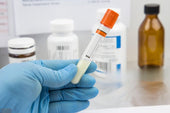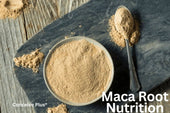Omega 3 DHA Supplement Role in Nourishing Body and Mind

Modern health trends place significant emphasis on nutritional supplementation as individuals seek to enhance vitality, cognitive function, and general well-being. Within this evolving landscape, attention has steadily shifted toward a specific nutrient known for its considerable influence on multiple body systems. An omega 3 DHA supplement stands out because docosahexaenoic acid (DHA) is a key player in supporting various physiological processes. The pursuit of better heart function, enhanced brain performance, and optimized cellular activity often leads people to examine how this fatty acid contributes to holistic health. This discussion provides an in-depth look at DHA and how it factors into a healthy routine, taking into account the latest findings and how they might influence daily choices in nutrition.
Understanding DHA: A Distinctive Fatty Acid
DHA is a long-chain omega-3 fatty acid found primarily in certain marine-based foods. The body depends on this nutrient for specific physiological functions, yet it cannot produce sufficient quantities on its own. To address these requirements, many individuals rely on dietary sources like fatty fish or certain algae. While eicosapentaenoic acid (EPA) is another widely recognized fatty acid, DHA has unique attributes that set it apart in terms of cognitive, visual, and cardiovascular support. Unlike shorter-chain omega-3 acids that the body can more easily convert from plant sources, DHA is more challenging to obtain in robust amounts through ordinary eating patterns alone [1].
Research consistently links DHA intake to an array of benefits that range from healthy aging to emotional well-being. Experts highlight that it can help support the structural integrity of neuronal membranes. This attribute resonates with individuals seeking sharper focus or more stable moods. Meanwhile, emerging evidence hints at its potential influence on gene regulation, further attesting to the complexity of its role in human biology. Overall, its wide-ranging effects and lower abundance in common diets have spurred considerable interest in supplementation.
Key Differences Between DHA and EPA
While DHA shares the omega-3 spotlight with EPA, there are notable distinctions. EPA is largely regarded for its part in modulating inflammatory responses. Many experts consider it particularly relevant in contexts where systemic inflammation is a major concern. On the other hand, DHA excels in maintaining cellular structure and function, especially in the brain and eyes. Furthermore, the retina features elevated concentrations of this nutrient. When people focus on sustaining cognitive performance or supporting visual acuity, DHA emerges as the primary candidate. Both are fundamental for overall health, but supplementation decisions often hinge on specific wellness objectives [2].
Interestingly, certain fish oil products contain a balanced mixture of both fatty acids, yet the exact proportions can vary widely. When a supplement is specifically tailored to deliver a higher DHA content, it acknowledges the distinct importance of this fatty acid for neurological functioning. For individuals who want to ensure adequate intake without focusing solely on marine foods, isolating DHA within a nutritional product may be an effective approach.
Brain Health and DHA
The brain’s intricate network of neurons relies on essential building blocks to sustain efficient communication pathways. Among these are omega-3 fatty acids, and DHA is often singled out for its relevance to cognitive processes. In developing infants, DHA is crucial for optimal brain formation, which is why many health professionals stress that pregnant women and nursing mothers include sufficient omega-3 fatty acids in their diets. Even beyond infancy, however, older adults may benefit from consistent DHA intake in their quest to preserve mental sharpness.
Recent findings suggest that individuals who consume higher amounts of DHA might experience improvements in executive functioning, attention, or memory recall. While the precise mechanisms are not fully unraveled, researchers have long recognized the fatty acid’s importance in shaping the fluidity and integrity of cell membranes in the nervous system. This structural role could account for the link between higher DHA consumption and potential cognitive support [3].
Eye Function and Vision Support
DHA constitutes a major portion of the retina’s total fatty acid content. When dietary intake of DHA is insufficient, it can create imbalances in the delicate architecture of the eye’s photoreceptor cells. As a result, scientists propose that DHA likely contributes to visual acuity. Investigations into how fatty acid deficiencies impact overall eye health have found that consistent DHA intake may align with a more robust retinal structure, which is linked to better vision maintenance over time.
Though people’s genetic makeup, existing health conditions, and environmental factors are pivotal in how the eye ages, nutritional strategies remain a core element of prevention. The emphasis placed on DHA in vision-related research underscores its potential protective qualities. As studies progress, the evidence continues to support incorporating this fatty acid into a balanced plan for overall ocular health.
Interested in enhancing your prenatal nutrition? Check out our article "What Is Prenatal DHA and Tips for Finding the Best Prenatal DHA Supplement" for expert guidance on choosing the right supplement.
Potential Benefits for Cardiovascular Well-Being
Cardiovascular health is a multifaceted endeavor that involves balanced blood pressure, healthy lipid profiles, and overall arterial flexibility. Some reports suggest that DHA may have a role in maintaining normal triglyceride levels, thereby helping individuals support a favorable lipid profile. While both DHA and EPA have attracted attention for their influence on heart health, research in recent years has concentrated on specific contributions of DHA. It is speculated that this particular fatty acid might be more effective than EPA at improving certain markers, such as improving vascular tone.
Another potential advantage is how consistent consumption of adequate amounts of DHA may help regulate inflammatory markers. A stable inflammatory response can be useful in preserving healthy blood vessel walls. The long-term maintenance of arterial flexibility can translate into better blood flow and oxygen transport throughout the body. While no single nutrient can guarantee complete protection from cardiovascular issues, harnessing DHA’s benefits is one step that many people find worthwhile [4].
How the Body Uses DHA
Upon absorption, DHA becomes integrated into cell membranes across various body tissues. This embedding helps maintain membrane fluidity, which influences the movement of molecules and ions between cells. By sustaining high-quality structures in these membranes, the nutrient supports healthy cell signaling, nutrient transport, and intercellular communication. In tissues that have especially high metabolic activity, such as the brain and eyes, DHA’s role is even more pronounced.
Because the human body doesn’t produce large quantities of DHA independently, dietary patterns with supplementation like omega 3 capsules remain vital. For individuals who are mindful of calorie intake or dietary restrictions, a suitable supplement can bridge any nutritional gap. Despite the increasing knowledge about DHA, confusion sometimes persists around which forms are best absorbed and how they might interact with other nutrients. Consulting with nutrition or medical professionals about the appropriate dosage and product type can help ensure a safe and productive approach.
Suitable Sources and Their Variations
Oily fish—such as salmon, mackerel, and sardines—are recognized for robust DHA content. Regular consumption of these foods is often recommended, but dietary habits or preferences may complicate this approach. Vegetarians or vegans sometimes turn to algae-based supplements that deliver DHA without relying on an animal source. Indeed, marine algae are among the primary origins of DHA in the aquatic food chain. When fish consume these algae, they accumulate this fatty acid, which is then available to humans through seafood consumption or extracted oil.
In omega 3 capsules form, DHA frequently appears in conjunction with other ingredients to boost absorption or to deliver complementary nutrients. Products may include added antioxidants, such as vitamin E, to help preserve oil integrity. Current manufacturing methods aim for minimal oxidation, since rancid oils can undermine the benefits. Reputable brands often subject their goods to rigorous testing for contaminants like heavy metals. This diligence ensures the final product aligns with health goals rather than introducing harmful substances.
Choosing a High-Quality Product
When comparing different products, verifying purity, potency, and quality is pivotal. Independent laboratories sometimes test supplements for total omega-3 concentrations, oxidation levels, and contaminant presence. Finding products that carry third-party certifications is one way to promote safety and quality. It is also recommended to examine the delivery format. Some individuals experience gastrointestinal discomfort when taking oils in liquid form, while others find softgels or capsules easier to incorporate.
Furthermore, reading the label carefully reveals the relative amounts of EPA and DHA. Even though some products aim for a comprehensive blend, others highlight a higher ratio of DHA, which might be more suitable for those whose primary concerns are cognitive and visual health. Price alone is not always indicative of quality, so verifying measurable factors—such as total DHA content per serving—is a better way to gauge value [5].
If you're interested in a holistic prenatal approach, be sure to check out our article "Folic Acid with DHA: Understanding the Importance of Both Together" to discover how folic acid with dha can further support fetal development.
The Bottom Line
Omega 3 DHA supplement usage has gained momentum for clear reasons. Growing research emphasizes the fatty acid’s contributions to brain, eye, and cardiovascular well-being, making it a valuable addition to numerous lifestyles. While many individuals obtain some DHA through diet, modern challenges and personal preferences can lead to inconsistent intake. A high-quality supplement helps ensure that the body receives the steady supply it needs for optimal function.
In a world where nutritional deficiencies can swiftly impede overall vitality, consistently incorporating DHA emerges as a wise move. Combined with a balanced lifestyle, this supplement can serve as a reliable ally on the journey toward enhanced cognitive clarity, visual health, and sustainable wellness practices. Whether sourced from marine fish or algae, its wide-reaching benefits deserve recognition in any thorough health plan. Discerning consumers who pay attention to product quality, dosage, and potential interactions set themselves up for the best possible outcomes, all while maintaining an active role in their self-care strategies. In that sense, harnessing the power of this fatty acid is more than just a nutritional endeavor—it is an investment in one’s long-term well-being.
References
- Li J, Pora BLR, Dong K, Hasjim J. Health benefits of docosahexaenoic acid and its bioavailability: A review. Food Sci Nutr. 2021 Jul 23;9(9):5229-5243. doi: 10.1002/fsn3.2299. PMID: 34532031; PMCID: PMC8441440.
- Allaire J, Couture P, Leclerc M, Charest A, Marin J, Lépine MC, Talbot D, Tchernof A, Lamarche B. A randomized, crossover, head-to-head comparison of eicosapentaenoic acid and docosahexaenoic acid supplementation to reduce inflammation markers in men and women: the Comparing EPA to DHA (ComparED) Study. Am J Clin Nutr. 2016 Aug;104(2):280-7. doi: 10.3945/ajcn.116.131896. Epub 2016 Jun 8. PMID: 27281302.
- Horrocks LA, Yeo YK. Health benefits of docosahexaenoic acid (DHA). Pharmacol Res. 1999 Sep;40(3):211-25. doi: 10.1006/phrs.1999.0495. PMID: 10479465.
- Yang ZH, Amar M, Sampson M, Courville AB, Sorokin AV, Gordon SM, Aponte AM, Stagliano M, Playford MP, Fu YP, Yang S, Mehta NN, Remaley AT. Comparison of Omega-3 Eicosapentaenoic Acid Versus Docosahexaenoic Acid-Rich Fish Oil Supplementation on Plasma Lipids and Lipoproteins in Normolipidemic Adults. Nutrients. 2020 Mar 12;12(3):749. doi: 10.3390/nu12030749. PMID: 32178279; PMCID: PMC7146314.
- Krupa KN, Fritz K, Parmar M. Omega-3 Fatty Acids. [Updated 2024 Feb 28]. In: StatPearls [Internet]. Treasure Island (FL): StatPearls Publishing; 2025 Jan-. Available from: https://www.ncbi.nlm.nih.gov/books/NBK564314/































